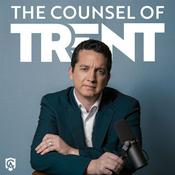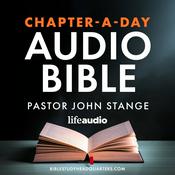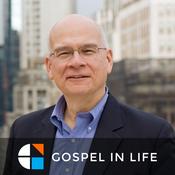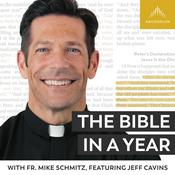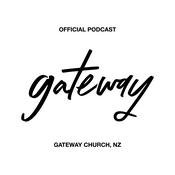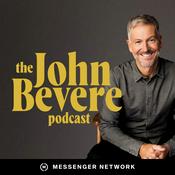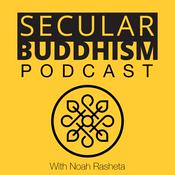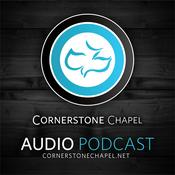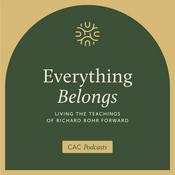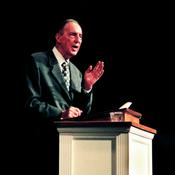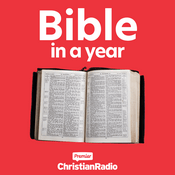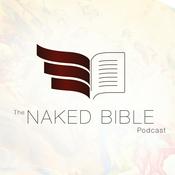183 episodes

Read More in 2026: 4 Simple Habits That Actually Work
06/1/2026 | 7 mins.
We all have a stack of books that we'd like to read but haven't gotten through yet. So how can we read more books, faster?Thankfully, the answer isn't found in speed reading or in simply reading shorter books. Instead, these four simple tips will help you read more books in less time.HELPFUL RESOURCES MENTIONED:🗎 Book List Spreadsheet Template (Plus recommended books)[You'll need to make a copy of the spreadsheet in order to edit it]📖 The 5-Foot Bookshelf: 57 Books Every Christian Should Own:https://reasonabletheology.org/bookshelf🎧 Audio Book Options:EverandAudible (30 Days Free)Support the showGET THE NEWSLETTEREach edition of the Reasonable Theology newsletter contains my latest article or podcast episode PLUS: A Theological Word or Phrase Explained Quickly and Clearly A Painting Depicting a Scene from Scripture or Church History Audio of a Hymn or other Musical Selection to Enjoy A Recommended Book or Resource to Expand Your Library SUBSCRIBE HERE

Inside Wingfeather Season 3 — With Executive Producer Brock Starnes | Ep. 99
14/11/2025 | 42 mins.
In this episode of the Reasonable Theology Podcast, I sit down with Brock Starnes, executive producer of The Wingfeather Saga, for a behind-the-scenes look at how Season 3 came together. We talk about the artistry, storytelling, and world-building that make Wingfeather so compelling, as well as the thoughtful way the team approaches faith, imagination, and truth in a fantasy setting.Brock shares insights into the creative process, the collaboration behind the series, and what families can look forward to as the story continues to unfold. Whether you've followed Wingfeather and the Igiby family from the beginning or you're just passionate about high-quality Christian storytelling, this conversation offers a great window into why the series resonates with so many.In this conversation, we explore:• The creative vision and collaborative process behind The Wingfeather Saga• How the team brings the world of Aerwiar to life visually and emotionally• The balance of whimsy, danger, humor, and heart that defines the series• The thoughtful integration of Christian themes within a fantasy story• What makes Wingfeather stand out from other faith-driven media• What viewers can look forward to in Season 3—and why now is a great time to start the series📚 Purchase the Wingfeather Saga book set▶️ Watch Season 3 of WingfeatherGet a free trial of Logos at ReasonableTheology.org/Logos Support the showGET THE NEWSLETTEREach edition of the Reasonable Theology newsletter contains my latest article or podcast episode PLUS: A Theological Word or Phrase Explained Quickly and Clearly A Painting Depicting a Scene from Scripture or Church History Audio of a Hymn or other Musical Selection to Enjoy A Recommended Book or Resource to Expand Your Library SUBSCRIBE HERE

Defending Your Christian Worldview: Tips from Apologist Greg Koukl
24/9/2025 | 56 mins.
Many believers want to boldly defend their Christian beliefs, but lack the confidence to do so.What if you could eliminate your anxiety, take control of intimidating conversations, and help others think more clearly about their views and the truth of Scripture? My guest Greg Koukl has the key: Asking good questions. In this replay episode, Greg shares how questions can help answer Christianity’s toughest challenges.Koukl has hosted his call-in radio show Stand to Reason for over 30 years, has written many helpful books including Tactics: A Gameplan for Discussing Your Christian Convictions.His book Street Smarts picks up where Tactics left off, providing model questions and example conversations to effectively discuss your Christian beliefs, even on hot-button issues such as moral relativism, the authenticity of Scripture, the gospel, abortion, marriage, gender, and more.Pick up a Copy: Street Smarts: Using Questions to Answer Christianity's Toughest Challenges Get a free trial of Logos at ReasonableTheology.org/Logos Support the showGET THE NEWSLETTEREach edition of the Reasonable Theology newsletter contains my latest article or podcast episode PLUS: A Theological Word or Phrase Explained Quickly and Clearly A Painting Depicting a Scene from Scripture or Church History Audio of a Hymn or other Musical Selection to Enjoy A Recommended Book or Resource to Expand Your Library SUBSCRIBE HERE

The Life & Legacy of Jonathan Edwards | Ep. 98
28/8/2025 | 35 mins.
Jonathan Edwards (1703–1758) was a central figure in the First Great Awakening and is often regarded as America’s greatest preacher and theologian. This episode explores his life, ministry, controversies, and lasting legacy.From his early years in colonial New England to his role in the Great Awakening, we look at Edwards’ most influential sermons and writings, his dismissal from Northampton, his missionary work in Stockbridge, and his brief presidency at Princeton. Along the way, we consider both his enduring contributions to theology and the challenges he faced, offering a thoughtful look at one of the most important figures in American church history.Top 5 Jonathan Edwards Biographies:1. Jonathan Edwards: A Life by George Marsden2. A Short Life of Jonathan Edwards by George Marsden3. Jonathan Edwards: A New Biography by Iain H. Murray4. The Essential Jonathan Edwards: An Introduction to the Life and Teaching of America’s Greatest Theologian by Owen Strachan5. Edwards on the Christian Life: Alive to the Beauty of God by Dane OrtlundGet a free trial of Logos at ReasonableTheology.org/Logos Support the showGET THE NEWSLETTEREach edition of the Reasonable Theology newsletter contains my latest article or podcast episode PLUS: A Theological Word or Phrase Explained Quickly and Clearly A Painting Depicting a Scene from Scripture or Church History Audio of a Hymn or other Musical Selection to Enjoy A Recommended Book or Resource to Expand Your Library SUBSCRIBE HERE

Boasting in the Lord: What Scripture Teaches About Wisdom, Power, and Wealth
21/8/2025 | 53 mins.
The world prizes wisdom, power, and wealth—yet Scripture warns us not to boast in these fleeting pursuits. In this sermon from Jeremiah 9:23–24, we are reminded that true satisfaction cannot be found in the things of this world. Instead, God calls us to set our hearts on knowing Him, the source of steadfast love, justice, and righteousness.We examine the ways worldly ambitions can subtly pull us away from Christ and how only a greater affection for God can free us from their grip. Through biblical teaching, practical reflection, and insights from voices like C.S. Lewis and Thomas Chalmers, this message encourages us to pursue eternal treasures rather than temporary gains.Get a free trial of Logos at ReasonableTheology.org/Logos Support the showGET THE NEWSLETTEREach edition of the Reasonable Theology newsletter contains my latest article or podcast episode PLUS: A Theological Word or Phrase Explained Quickly and Clearly A Painting Depicting a Scene from Scripture or Church History Audio of a Hymn or other Musical Selection to Enjoy A Recommended Book or Resource to Expand Your Library SUBSCRIBE HERE
More Religion & Spirituality podcasts
Trending Religion & Spirituality podcasts
About Reasonable Theology Podcast
Listen to Reasonable Theology Podcast, The Counsel of Trent and many other podcasts from around the world with the radio.net app
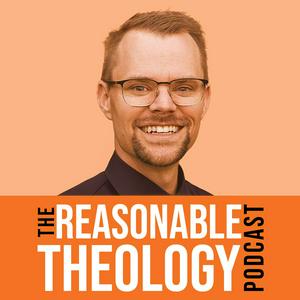
Get the free radio.net app
- Stations and podcasts to bookmark
- Stream via Wi-Fi or Bluetooth
- Supports Carplay & Android Auto
- Many other app features
Get the free radio.net app
- Stations and podcasts to bookmark
- Stream via Wi-Fi or Bluetooth
- Supports Carplay & Android Auto
- Many other app features


Reasonable Theology Podcast
download the app,
start listening.
